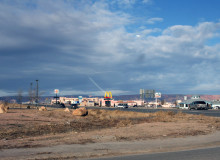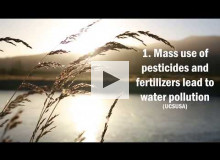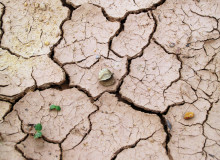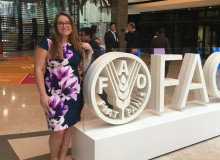Food
George Washington University
The Navajo Nation reservation in the southwest United States has only 13 grocery stores for more than 300,000 people. With so few full-service grocery stores, the reservation is a food desert on a massive scale.
SUNY ESF
As the world becomes increasingly industrialized, globalized, and warmer, small family farmers in the United States have been left behind, struggling to maintain their businesses.
SUNY College of Environmental Science and Forestry
Communities are fighting back against the dollar store invasion of low-income rural and urban areas. In this story, my hometown deals with new norms as food access shifts. New ideas are introduced that may help my small neighborhood relinquish their... Read More
SUNY College of Environmental Science and Forestry
Food for Thought is a podcast discussing the food that ends up at your table, and in this episode we talk about the potential solution of mobile farmer's markets for the issue of food deserts.
SUNY College of Environmental Science and Forestry
Dumpster diving is an alternative solution to wasting food.
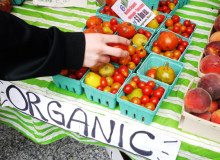
Is organic always better than conventional produce? Here are five organic food myths debunked. (Creative Commons Public Domain)
The George Washington University
Organic food assumptions, fueled by marketing, are that organic cherries are more nutritious, safer, and healthier for me since organic farming is better for the environment. Is this the truth?
George Washington University
At the end of our time in Rome, I spent a day exploring the ancient city of Pompeii. Just as Pompeii experienced a catastrophic environmental event in 79 A.D., we in 2019 are facing down climate change on a global scale.
University of California, Berkeley
I found it comforting to know that in a highly polarized political climate, countries are willing to put aside their differences to ensure that the most vulnerable in their society are able to thrive.
Planet Forward Correspondent | SUNY-ESF
When I entered the headquarters of the FAO on Monday morning, I knew the week ahead would include breakthroughs and realizations — not only for myself, but for the world.
Planet Forward Correspondent | University of Mississippi
I had impatiently waited to attend the Committee on World Food Security for the past four months. Little did I know that I was about to step inside a place that would dramatically change my perspective on global issues.

